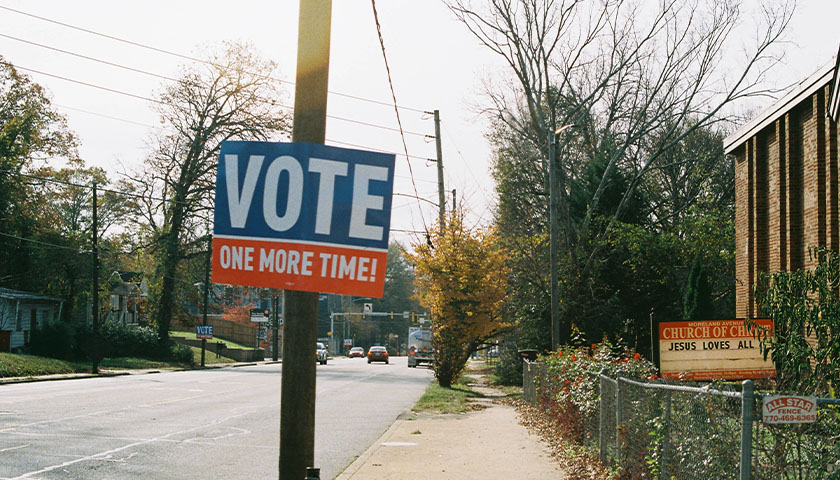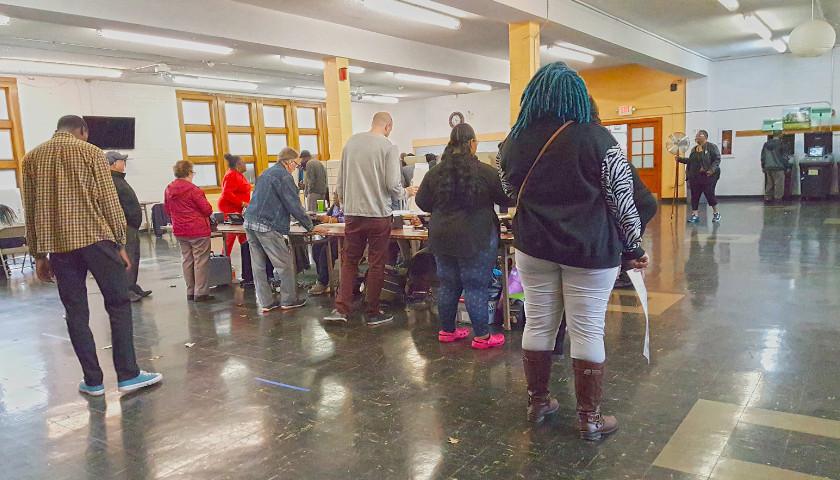by W.J. Kennedy
The results of a poll of likely Georgia voters indicates overwhelming support for requiring absentee voters in the state to provide photo identification – including from minorities and independents.
The poll, conducted July 12-14 by ARW Strategies of Illinois, puts overall support for the absentee “voter ID” measure – part of a new election reform law signed by Republican Governor Brian Kemp in March – at 67 percent (2-1) of those likely to vote.
Eighty-four percent of Hispanic voters, and 45 percent of black voters support voter ID, the poll shows. The poll also showed voter ID has broad appeal in Georgia across political affiliations, with 95% of Republicans, 59% of Independents, and 39% of Democrats supporting it.
“Georgia’s new voter law is one of the most publicly scrutinized pieces of state legislation,” Andrew Weissert, founder of ARW, said in a statement released with the poll results. “Voters saw the debate play out both nationally and locally, and it’s clear from this survey that, in the end, Georgians overwhelmingly support key provisions in the law, specifically the photo identification requirement to cast an absentee ballot. This fact has remained true from public polling at the start of the year to these findings today.”
The poll was released the day before a rare field hearing in Georgia on voting rights by the U.S. Senate Rules Committee.
The Committee, chaired by Sen. Amy Klobuchar (D-MN), has scheduled a hearing for Monday in Atlanta titled “Protecting the Freedom to Vote: Recent changes to Georgia voting laws and the need for basic federal standards to make sure all Americans can vote in the way that works best for them.” The hearing will feature testimony from Senator Raphael Warnock (D-GA), who is up for re-election in 2022.
The first field hearing for the committee in 20 years, it comes just weeks after election-related defeats for Democrats in Congress and in the U.S. Supreme Court.
Senate Democratic Leadership failed to garner the votes for legislation (H.R. 1 and S.1) that would effectively federalize the nation’s elections by stripping the states of their constitutionally derived authority to establish their own election practices and procedures. The bills would nullify voter ID requirements in state election laws.
SCOTUS rejected arguments in Brnovich v. Democratic National Committee that two Arizona voting rules violated Section 2 of the 1965 Voting Rights Act, which prohibits discrimination in election practices. One of the Arizona election rules banned third-party collection of mail ballots (ballot harvesting) by political activists. Ballot harvesting restrictions are in most of the state election reform laws passed since the 2020 General Elections.
The ARW polling also shows that contrary to the charges that the new voter laws will suppress the vote among minorities, 97 percent of blacks surveyed said they “definitely” plan to vote in the 2022 midterm elections, and 100 percent of Latino voters said they would.
Other polls show the same level of support for voter ID. A March 2021 study by Rasmussen found that 75% of likely U.S. voters believe voters should be required to show photo ID before being allowed to vote, and 21% are opposed to such a requirement.
In Pennsylvania, a recent poll by Franklin & Marshall College showed that 74 percent of likely Pennsylvania voters support voter ID provisions in state election laws. Election reform legislation requiring voter ID was recently vetoed by Pennsylvania Gov. Tom Wolf, a Democrat.
And in February, a month before the Gov. Kemp signed the Georgia election reforms into law, the Atlanta Journal-Constitution conducted a poll showing that most Georgia voters favor voter ID for absentee ballots.
Black voter turnout in Georgia rose after photo identification requirements for in-person voting became law in 2007. A record number of Georgia blacks voted for Barack Obama in 2008, his first run for President. Black turnout that year was 76 percent, or four percentage points higher than in 2004, before the voter ID law. Georgia black turnout was also higher in the 2010 midterm elections, seven points higher than the comparable 2006 midterms, according to a Reuters analysis. “I don’t think it has hampered anybody from being able to let their voice be heard,” Georgia’s then-Secretary of State Kemp, said.
In March, Democratic National Committee lawyer Marc Elias said requiring identification for voting by mail would be a challenge for black voters in Georgia. If asked to provide their drivers’ license number on a vote by mail application, Elias said they might be confused, using the wrong one.
The ARW poll of 600 likely voters was conducted from July 12th – 14th, with a margin of error rate of plus or minus four percent.
– – –
W.J. Kennedy is a reporter at The Peach Tree Times.





